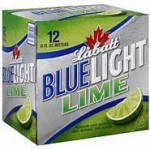First Bitcoin public company (sort of) went public through reverse merger.
Charles Allen, CEO and CFO, of Bitcoin Shop recently went on CNBC to discuss why a reverse merger was the best choice for his company to go public. His reasons included:
- Publicity from being public
- Transparency
- Time to market, merger done in three weeks
- They wanted to be the first public Bitcoin company
- Ability to raise funds
For this post, let’s overlook my opinion that reverse mergers are generally a terrible idea. You never know what you are getting into, such as Bitcoin Shop’s recent extensive revisions of two years worth of financial disclosures following the notice of nonreliance on previously issued financial statements and audit reports.

There are private companies that not only can navigate the process, but have the systems set up to successfully transition to being a public company. However, they are few and far between. In addition, the fundraising seldom materializes. To Bitcoin Shop’s credit, they did raise about $1.8 million in a private placement related to the reverse merger.
As to Bitcoin Shop’s Bitcoin-related business, as Mr. Allen described on CNBC, it basically is an affiliate seller of products for other sites. It lists products and permits payment by Bitcoin. It has a goal to be a leading virtual currencly marektplace, but it is not a “Bitcoin” company. It markets stuff sold by others and processes payment and takes fees. It currently has a single vendor, but it plans more.
Bitcoin Shop may be able to earn revenue through markups on products and processing fees and undercut credit and debit card processing fees. Time will tell if this is a viable strategy. But, for all of the technical discussion in its investor presentation and SEC filing discussion the transition, Bitcoin Shop is an ecommerce company that lists products for sale by another vendor and processes payment denominated in Bitcoin.
There is nothing wrong with that, and I would not be surprised to see many more follow suit. However, I am reminded of seemingly hundreds of companies with little relationship to technology slap a “.com” at the end of their name back in the 1990’s. Is history repeating itself?


